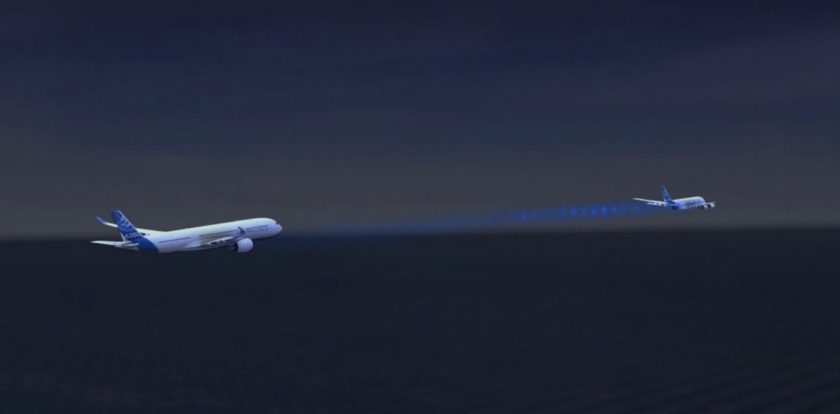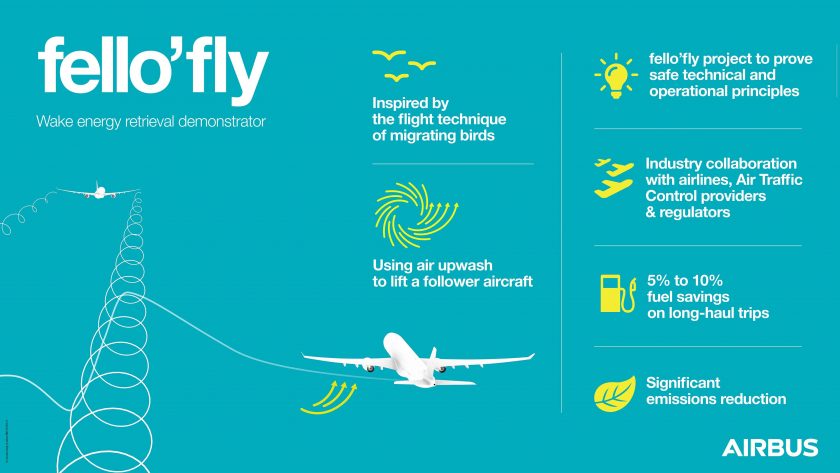Airbus project which mimics actions of migrating birds is set to boost environmental performance of aircraft

One of the great sights and sounds in the skies above Deeside this time of year is the thousands of pink-footed geese migrating from Iceland and Greenland to spend the winter in the UK.
The area around the Dee Estuary hosts over 10,000 geese, they spend the night on the safety of the saltmarsh before flying in v-formations to feed on farmland up the Dee valley each day.
Now Airbus is mimicking the actions of migrating birds as it looks to boost the environmental performance of its aircraft.
The planemaker has unveiled fello’fly, its latest demonstrator project inspired by biomimicry – the design and production of materials, structures and systems inspired by nature.
The company says project will boost the environmental performance of its commercial aircraft and make a “significant impact on emissions reduction for the aviation industry.”
Airbus’ fello’fly project aims to demonstrate the technical, operational and commercial viability of two aircraft flying together for long-haul flights.
Through fello’fly, a follower aircraft will retrieve the energy lost by the wake of a leader aircraft, by flying in the smooth updraft of air it creates.
This provides lift to the follower aircraft allowing it to decrease engine thrust and therefore reduce fuel consumption in the range of 5-10% per trip.
The technical solution that Airbus is working on involves pilot assistance functions necessary to ensure the aircraft they are flying remains safely positioned in the updraft of air of the aircraft they are following, maintaining the same distance, at a steady altitude.
In terms of the operational solution, Airbus says it is working, “in collaboration with airlines and Air Traffic Control (ATC) providers, to identify the operational needs and suitable solutions for planning and executing fello’fly operations.”

Airbus is due to commence flight tests with two of its A350 aircraft in 2020, a spokesperson said:
“Given the high potential for a positive environmental impact for the industry, Airbus is targeting an ambitious timeline for a controlled Entry-Into-Service (EIS), which is expected before the middle of the next decade.
This new demonstrator project for optimized aircraft operation, strengthens Airbus’ position in a field where it is already heavily investing and focusing its research efforts on developing, innovating and leveraging emerging technologies, directly contributing to the sustainable offset of emissions reducing the environmental footprint of the aviation industry as a whole.”
Spotted something? Got a story? Email: [email protected]
Latest News
